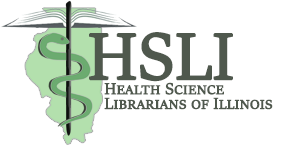(via Sara Gonzalez, University of Florida, on behalf of Dr. Michelle Nolan, University of Florida)
For the Fall 2021 American Chemical Society National Meeting (August 22-26, Sunday-Thursday), I am organizing a symposium on information literacy and librarianship in the times of scientific “fake news” entitled Information Literacy in the Disinformation Era as part of the Division of Chemical Information (CINF) program. I would love to receive a wide range of abstract proposals, ranging from library instruction to information literacy research to case studies for classroom use. My aim for this symposium is to make chemistry educators more aware of the roles we play in teaching students to be critical about information consumption, both in and out of the academy.
As of now, the ACS meeting is planned to be in hybrid format and will occur both online and in Atlanta. The symposium format will be 25-minute talks and I am also interested in organizing a panel discussion. Proposals for talks can be submitted through the ACS Abstracts service linked below, and if you are interested in proposing a panel, please e-mail me directly, at michellenolan@ufl.edu.
Please see the below call for abstracts and submit your abstract by Monday, April 12, here.
Information Literacy in the Disinformation Era
Information literacy refers to the collection of skills and practices learners use in the “discovery of information, the understanding of how information is produced and valued, and the use of information in creating new knowledge and participating ethically in communities of learning” (as defined by the Association of College & Research Libraries). In the past several years, the proliferation of misinformation and disinformation created widespread consequences in all areas, including in the scientific world.
In this symposium, we are interested in exploring the ways that chemistry educators and librarians have taught information literacy skills which students can use in both the chemistry discipline and outside the academy. We welcome contributions of both teaching practice (such as lesson plans and activities) as well as theoretical or research-based explorations of information literacy education. Some possible topics include research studies on information practices, lesson plans on recognizing fake scientific news, tools for evaluating trustworthy scientific sources, case studies examining scientific communication, the role of librarians in combating misinformation, and beyond.
